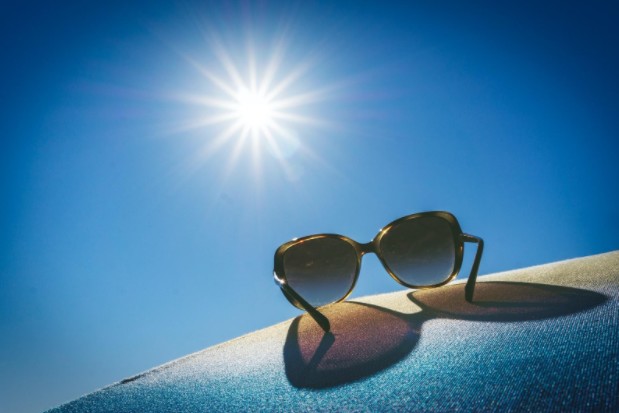How many times has it happened to you that you have dirty or fogged eyeglass lenses, so much so that you feel immersed in a dense fog? Cleaning your glasses is essential for optimal vision: if your glasses are dirty, they can cause visual stress, which strains your eyes. Cleaning the glasses therefore becomes important to see clearly, and to extend the life of our lenses, whose main feature is transparency. Here are the most effective remedies and useful tips to keep your glasses clean for a long time avoiding damaging them.
Why it is important to clean eyeglasses?
As we have seen, prescription lenses are prone to get dirty very quickly, this due to dust, dirty hands, rain, smog, sweating, which can cause your glasses to suddenly mist up. Dirty lenses can cause damage to eyesight, not only for reasons of hygiene, but also due to poor focus on our surroundings. This is why it is essential to clean your glasses daily: the important thing, however, is to do it right. If cleaning is done incorrectly or hastily, this could cause scratches on the glasses, or it could create annoying streaks on the lenses. Here are the foolproof methods to clean glasses properly.
Microfiber cloth for daily cleaning
Daily cleaning of the lenses must be performed with the special microfiber cloth sold with the glasses. It should be used every day for quick cleaning and to eliminate streaks. To keep it at its best, always keep it in the case of your glasses and never use it if it gets dirty, otherwise it won’t be of any use. Periodically wash the microfiber cloths for glasses with lukewarm water and neutral soap, rinse and let them dry well before using it.
You can also use carbon microfiber technology to efficiently clean your glasses. One such cleaner is the Peeps eyeglass cleaner that uses ground-breaking carbon microfiber tech to remove any residue, including fingerprints, streaks, smudges and more from sunglasses and glasses. Read this Peeps Eyeglass Cleaner review to know more about this NASA recommended device.
Specific sprays or alcohol for very dirty lenses
When the lenses of the glasses are very dirty or if there are signs of grease, then it is necessary to act in a targeted way. There are specific sprays that eliminate grease and encrustations and delay the formation of dirt on the lenses. A common mistake is to spray the spray on the microfiber patch and then proceed to cleaning: spray it directly on the lenses, dry with a tissue, and then finish with the microfiber patch to complete the cleaning. Alternatively, you can use specific disposable wipes or use a do-it-yourself remedy: denatured alcohol, the pink one you use to disinfect wounds. It is in fact an economical product, which we all have at home, and which helps degrease the lenses of your glasses, but without damaging them.
Wash with water for periodic cleaning
Periodically, then, clean your glasses with water and neutral soap: the one you use to wash your hands will also be fine. But make sure to use lukewarm water: if the temperature is too low or too high, the anti-reflective treatment of your glasses could be damaged. To clean, proceed as follows: thoroughly lather the lenses, rinse well and dry with a paper tissue. Then finish the cleaning with the microfiber piece of the glasses.
Toothbrush and mild soap to clean the nose pads
In addition to cleaning the lenses, let’s not forget the area between the nose and the lenses: in fact, it is here that dust and sebum accumulate, dirt residues that could also involve the lenses themselves. Wash this area with a soft toothbrush and mild soap: brush gently, avoiding touching the lenses. Then rinse under lukewarm water, shake slightly and dry with the microfiber cloth. In this way, even the nose pads will shine again.
The tricks to have clean lenses without damaging them
For the correct cleaning of your glasses, avoid cleaning the lenses with the first thing that happens to you: t-shirt, tablecloth, shirt cuff, tie, napkin, kitchen roll, etc. scratching your glasses, while napkin paper or kitchen paper is often too stiff which will not guarantee proper cleaning. This is why it is important to always carry the microfiber piece in your bag. Also avoid leaving your eyeglasses in the car in the sun: sudden changes in temperature could damage the anti-reflective treatment. Among the grandmother’s methods there is also that of using moistened toilet paper: unfortunately, however, this is not an effective remedy, as the cellulose, rubbed on the lenses, it could ruin them irreversibly. In an emergency, use soft cotton as much as possible.

